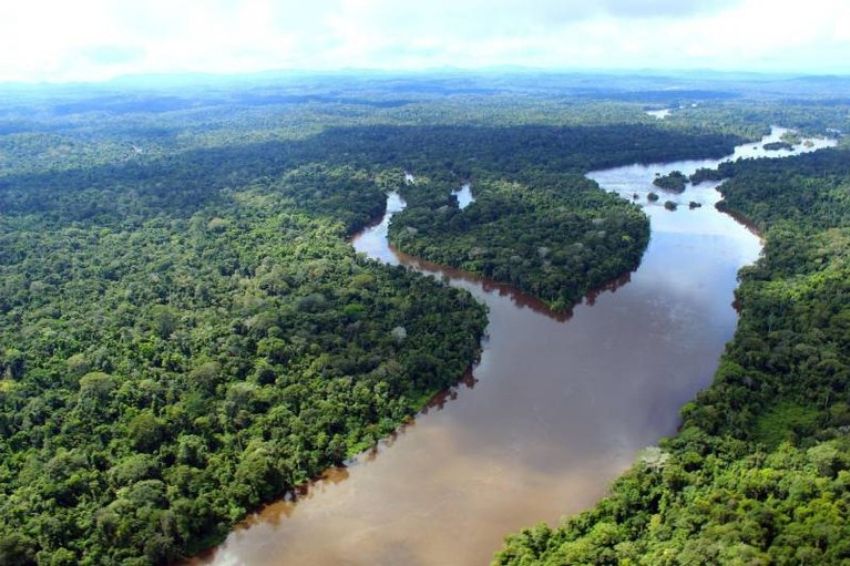BNDES (National Bank for Economic and Social Development) and Eletrobras signed a partnership to work on finding solutions that promote the generation of renewable energy in the Amazon.
The agreement was made during the global call for UN (United Nations) for the presentation of “Energy Compacts”, which were formalized during the UN High-Level Dialogue on Energy, an event held between the 22nd and 24th of September.
According to the scope of the commitment signed by BNDES and Eletrobras presented to the UN, studies will be conducted on the economic, technological, legal and regulatory aspects to be considered in a plan to replace diesel generation with clean energy in the Isolated Systems of the Amazon, regions remote areas that are not served by Interconnected Systems.
Currently, more than 90% of the energy capacity installed in these regions, where around 3 million people live, is based on diesel thermal plants, a highly polluting fossil source. The agreement aims to accelerate actions that promote the implementation of the energy goals and objectives of the UN 2030 Agenda, catalyzing innovative solutions, investments and partnerships to achieve the SDGs (Sustainable Development Goals) and accelerate the implementation of the Paris Agreement.
“Brazil was chosen by the UN as one of the global leaders of the energy transition in the High-Level Energy Dialogue. With this pact, BNDES presents its contribution as one of the largest financiers of renewable energy in the world”, highlighted Petrônio Cançado, director of Infrastructure Credit.
Read too: Amazon 4.0 Project foresees sustainable exploitation of biodiversity
The joint initiative will also evaluate financing mechanisms for projects to promote the cleaning of the Amazon energy matrix and current regulatory incentives, as well as studying new incentives for implementing programs.
“For Eletrobras, it is an honor to join global efforts at a time when the world turns its attention to the energy transition, based on low carbon emissions and renewable sources. Eletrobras, as the largest electrical energy company in Latin America and a reference in clean energy generation, has a lot to contribute to the topic and to achieving SDG 7, which is a prioritized objective in our business strategy, in synergy with our value creation model”, stated Rodrigo Limp, president of Eletrobras,.
Actions are also planned to promote pilot projects and encourage collaborations between institutions interested in working on the topic. The results and contributions of the companies involved will be evaluated so that a public policy plan with specific decarbonization targets can be proposed for the period from 2025 to 2030, in the context of the UN 2030 Agenda.
“The declaration of the Energy Pact is yet another of BNDES' efforts to act as an inducer to accelerate investments related to the transition of the Brazilian energy matrix to renewable sources”, commented Bruno Aranha, director of Productive and Socio-Environmental Credit at BNDES. “The initiative is fully aligned with the Bank’s actions on the ESG (Environmental, Social and Governance) agenda”, he concluded.
Energy Pacts
You Energy Compacts These are voluntary commitments from countries, companies, institutions and other interested actors, such as local governments and NGOs, with specific actions that contribute to SDG 7, which provides for universal, reliable, modern and affordable access to clean energy by 2030.


















One Response
Very inspiring, but they still propose to carry out studies. Since the 90s, and even before that, several studies, experiments and demonstration projects have been carried out in the Amazon, we ourselves have participated in dozens, whether with solar (photovoltaic and thermal), biomass (biogas, pyrolysis, burning, gasification ), hydrokinetics, natural oils, etc., etc. etc. Models with community participation, or without, models of public-private partnerships, models with NGOs, universities, etc., etc. There is a large mass of information and knowledge on the topic. An example where the government always “makes mistakes”, by giving the wrong signal to the private sector, is in energy auctions for isolated systems. More favorable auctions for renewable sources could unlock many opportunities for generating clean energy and decarbonizing the Amazon. It was enough to make it clear and evident in these Auctions that renewable sources would have at least a balanced and equitable treatment compared to Diesel and, now more recently, gas that entered the fray. Auctions are instruments that are “in the hands” of the government and with each new auction, another opportunity is lost to decarbonize energy in the Amazon, as the methodologies adopted become “punitive” for clean and renewable sources. Anyone who participates in these auctions knows what I'm saying. Diesel wins, gas wins, fossil hydrocarbons win, loses the forest and its local people and loses Brazilian society (which pays this bill). Lose the planet. This is the IMMEDIATE and short-term agenda to start the decarbonization of the Amazon, not to mention the hundreds of small diesel generators spread across isolated and remote communities, but then the topic is different.